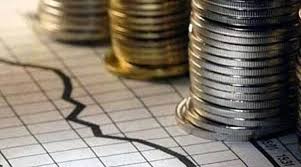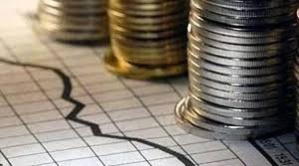According to a new report from analysts at Goldman Sachs, there has been a slump in investment and spending by corporate America at the fastest rate in a decade because of economic worries.
According to the predictions by the investment bank, there will be a decline of 6 per cent in 2019 in the cash spending by large corporate on capital projects, research and development, mergers and acquisitions, buybacks and dividends and this decline in spending will be the sharpest since 2009.
The report however expects a rebound in the cash spending for S&P 500 companies to a little extent in 2020 with a 2 per cent rise to $2.7 trillion. Till such time however companies are expected to remain very cautious because of uncertainties.
“Companies spend less cash when policy uncertainty is high. During August, global economic policy uncertainty registered the highest level in at least 20 years ... The combination of the ongoing trade conflict and next year's US presidential election will likely result in lingering uncertainty,” says the Goldman report.
There is little chance that any trade deal will be struck between the United States China resulting in significant reduction of tariffs before the 2020 US presidential election, expects Goldman Sachs.
For the US economy, while there has been growth in spending by the huge consumer base of the country which has managed to allay fears of a recession, there is also concerns rising because of recently reported numbers showing weakness in manufacturing and downgrading in corporate sentiment.
The emergence of weak corporate confidence was recently cited in their earnings report last week by bank executives such as JPMorgan Chase CEO Jamie Dimon. Despite all of these issues however, there is optimism among the largest bank of the US. "I would say, no doubt, cautionary signs, but credit remains very good, and there's still very healthy business activity," Jennifer Piepszak, JPMorgan's chief financial officer, told analysts.
On the other hand, while markets expected a cut in its benchmark interest rate by the People's Bank of China, it did not do so on Monday. This surprised the markets because the Chinese economy had reported worse-than-expected GDP data last week and third quarter growth for the economy came in at 6 per cent which is the lowest since almost three decades.
“The question now is whether China believes it's unnecessary to reduce interest rates given better than expected September data, or whether it wants to keep the interest rate cut 'bullet' for the future in case trade tensions escalate further,” Iris Pang, a China economist at ING, wrote in a note to clients Monday.
Frantic efforts to finalize a "phase one" trade deal before a meeting between the United States and China in Chile in mid-November is being carried out by the two countries. But until such time that the deal happens, any truce in the trade war between the two parties are highly unlikely.
(Source:www.cnn.com)
According to the predictions by the investment bank, there will be a decline of 6 per cent in 2019 in the cash spending by large corporate on capital projects, research and development, mergers and acquisitions, buybacks and dividends and this decline in spending will be the sharpest since 2009.
The report however expects a rebound in the cash spending for S&P 500 companies to a little extent in 2020 with a 2 per cent rise to $2.7 trillion. Till such time however companies are expected to remain very cautious because of uncertainties.
“Companies spend less cash when policy uncertainty is high. During August, global economic policy uncertainty registered the highest level in at least 20 years ... The combination of the ongoing trade conflict and next year's US presidential election will likely result in lingering uncertainty,” says the Goldman report.
There is little chance that any trade deal will be struck between the United States China resulting in significant reduction of tariffs before the 2020 US presidential election, expects Goldman Sachs.
For the US economy, while there has been growth in spending by the huge consumer base of the country which has managed to allay fears of a recession, there is also concerns rising because of recently reported numbers showing weakness in manufacturing and downgrading in corporate sentiment.
The emergence of weak corporate confidence was recently cited in their earnings report last week by bank executives such as JPMorgan Chase CEO Jamie Dimon. Despite all of these issues however, there is optimism among the largest bank of the US. "I would say, no doubt, cautionary signs, but credit remains very good, and there's still very healthy business activity," Jennifer Piepszak, JPMorgan's chief financial officer, told analysts.
On the other hand, while markets expected a cut in its benchmark interest rate by the People's Bank of China, it did not do so on Monday. This surprised the markets because the Chinese economy had reported worse-than-expected GDP data last week and third quarter growth for the economy came in at 6 per cent which is the lowest since almost three decades.
“The question now is whether China believes it's unnecessary to reduce interest rates given better than expected September data, or whether it wants to keep the interest rate cut 'bullet' for the future in case trade tensions escalate further,” Iris Pang, a China economist at ING, wrote in a note to clients Monday.
Frantic efforts to finalize a "phase one" trade deal before a meeting between the United States and China in Chile in mid-November is being carried out by the two countries. But until such time that the deal happens, any truce in the trade war between the two parties are highly unlikely.
(Source:www.cnn.com)






